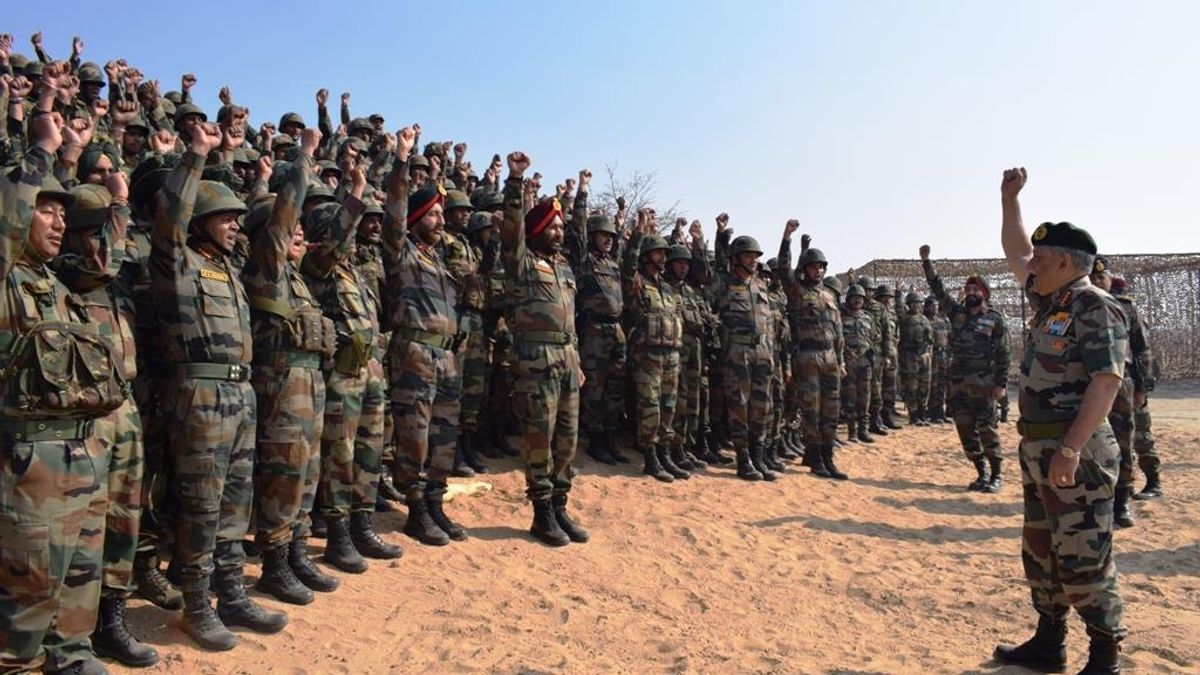Indian Army Embraces Outsourcing for Enhanced Operational Efficiency

The Indian Army, a formidable force known for its unwavering dedication and commitment, is embracing change. In a strategic move aimed at optimizing manpower and enhancing operational efficiency, the Army is outsourcing various essential non-core responsibilities. This transformation, set to redefine the Army’s operational landscape, includes tasks such as defense training preparations, professional development courses, security of non-sensitive military locations, repair and recovery of stores and equipment, and facility management services.
A New Era of Operational Efficiency
The Indian Army’s decision to outsource certain responsibilities is part of a larger strategy to sharpen its operational edge. By entrusting non-core functions to contractors and veterans, the Army aims to optimize its manpower and focus on its core duties. This shift is expected to significantly improve the tooth-to-tail ratio of the force, a critical metric that measures the balance between combat and support personnel.
Examples of these best practices include hiring veterans as instructors for preparatory courses for various career exams. This not only provides employment opportunities for retired soldiers but also leverages their expertise and experience for the benefit of the Army. Language training is another area where the Army is looking to outsource. By recruiting language experts, the Army can ensure its personnel are equipped with the necessary linguistic skills to navigate the complexities of international diplomacy and border negotiations.
The Army is also exploring the possibility of outsourcing facility management services. This includes food and catering services at military hospitals, hospital waste management services, and medical consultancy services. By entrusting these tasks to professional service providers, the Army can ensure high-quality services while freeing up its personnel to focus on core military duties.
Ensuring Quality and Control
While the Army is embracing outsourcing, it is also taking measures to ensure quality and control. Any decision to outsource new services requires approval from the Vice Chief of the Army. This ensures that the decision-making process is centralized and that outsourcing is done in a strategic and controlled manner.
The Army is also making sure that no core functions are outsourced. This is crucial for maintaining the Army’s operational integrity and ensuring that its core capabilities remain in-house. The focus is on outsourcing tasks that, while essential, do not form part of the Army’s core functions.
A Phased Implementation
The implementation of this outsourcing strategy is being done in phases. The Army has already started implementing these practices in some commands and is encouraging other commands to replicate them. The goal is to have this exercise fully implemented within the next five years.
As the Indian Army embarks on this new journey, it is clear that the focus is on optimizing resources and improving operational efficiency. By outsourcing non-core functions, the Army aims to sharpen its operational edge and better prepare for the challenges of the future.
In a world where the only constant is change, the Indian Army’s decision to outsource certain responsibilities is a testament to its adaptability and forward-thinking approach. As this transformation unfolds, the Army’s commitment to its core mission remains unwavering: to serve and protect the nation with unwavering dedication and courage.



